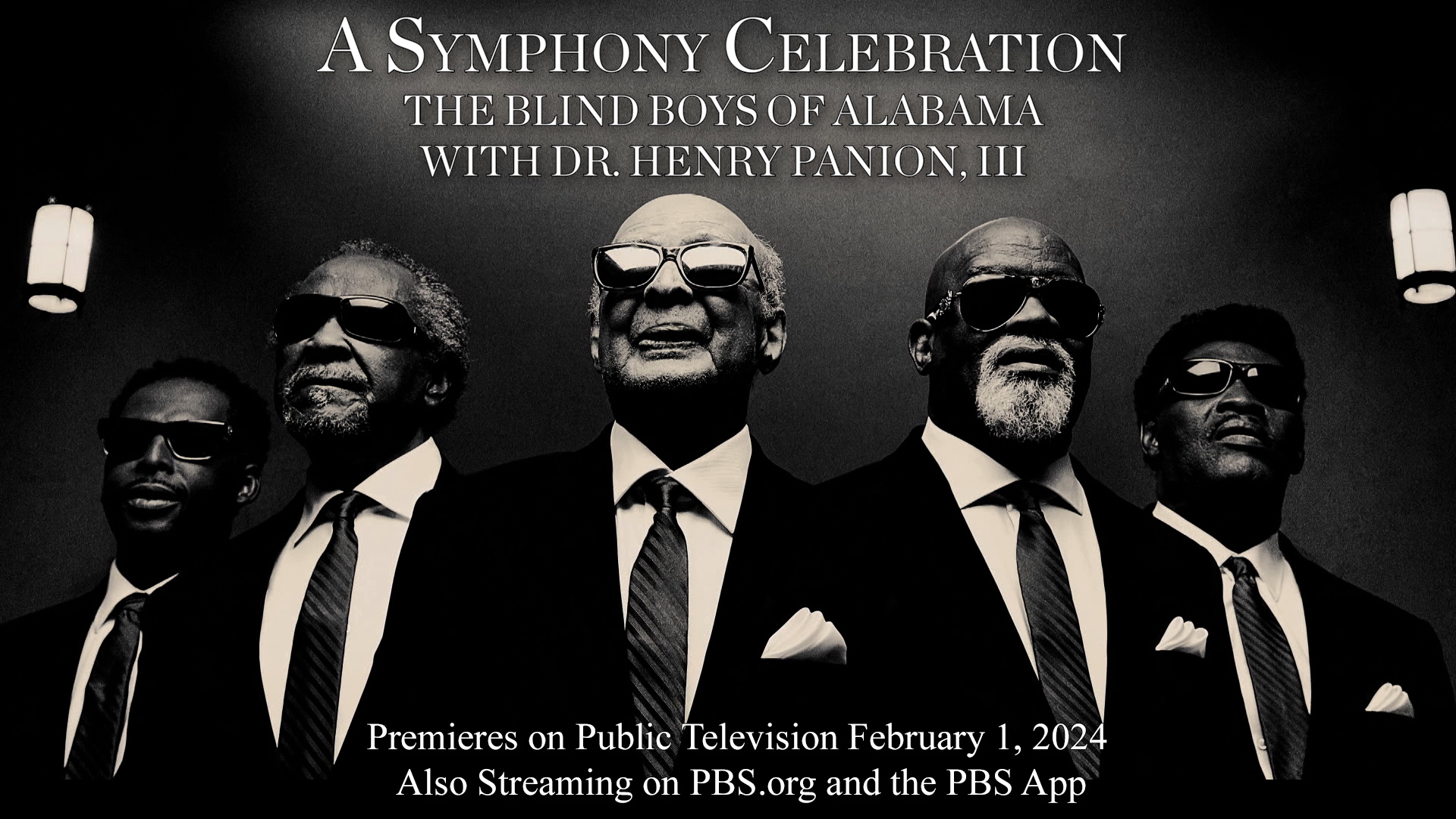 A new one-hour music special, “A Symphony Celebration: The Blind Boys of Alabama with Dr. Henry Panion III,” will premiere to public television stations nationwide in February.
A new one-hour music special, “A Symphony Celebration: The Blind Boys of Alabama with Dr. Henry Panion III,” will premiere to public television stations nationwide in February.
Composer, conductor, educator, producer and 2023 Alabama Music Hall of Fame inductee Henry Panion III, Ph.D., is a University Professor of Music in the University of Alabama at Birmingham’s College of Arts and Sciences.
For this exclusive performance on stage at UAB’s Alys Stephens Performing Arts Center, Panion arranged and orchestrated the Blind Boys’ classic hits and conducted a full orchestra featuring members of the Alabama Symphony Orchestra plus a 300-person combined choir from Alabama State and Alabama A&M universities, Miles College, Tuskegee University and Talladega College, Birmingham Southern College, and the UAB Department of Music.
The one-hour concert documentary, filmed in Alabama, shares the history of the Blind Boys and origins of their music through intimate interviews and compelling biographical vignettes. The script was written by UAB Professor Lee Shackleford who teaches in the Department of Theatre.
Produced by Panion’s studio, Audiostate 55 Entertainment, “A Symphony Celebration” is presented and distributed nationally by American Public Television. The film will premiere at 7 p.m. Thursday, Feb. 1, in the Alabama Theatre. Admission is free and open to the public; reserve tickets online. The Blind Boys of Alabama are scheduled to attend and after the premiere they will participate in a Q-and-A on their lives.
It will air at 9:30 p.m. Friday, Feb. 9, on Alabama Public Television; check local listings for other showtimes.
American Public Television is the leading syndicator of high-quality, top-rated programming to the nation’s public television stations. Founded in 1961, APT’s diverse catalog includes prominent documentaries, performances, dramas, how-to programs, classic movies, children’s series, and news and current affairs programs.
Hailed as “Gospel Titans” by Rolling Stone magazine, five-time Grammy-winners Blind Boys of Alabama was founded in 1939 by five visually impaired teenagers from the Alabama Institute for the Negro Deaf and Blind. They rose to fame in the segregated South, performing live shows with their vocal harmonies, and ascended from the Birmingham radio station WSGN to Carnegie Hall, the White House, the Grammy Awards and the Gospel Hall of Fame. The group has collaborated with artists as diverse as Mavis Staples, Lou Reed and Prince.
Panion’s work with the Blind Boys of Alabama, which has spanned more than 20 years, led to this fusion of gospel and orchestral music, he says. In addition to defying the odds and rising to national prominence, the Blind Boys broke down racial barriers and redefined modern gospel music along the way.
“It is really unbelievable in many ways when you think about having to grow up like they did, singing and being invited to the White House, but not being able to get a good hot meal in certain restaurants, in certain places in our country,” Panion said in the documentary. “But that did not change them. If anything, it made them embrace who they were and develop a greater sense of love for our country and our people. I think it is all about hope.”
Panion has worked with many notable orchestras such as the Royal Philharmonic, the Bolshoi Symphony in Russia, the Tokyo Philharmonic in Japan and more than 50 other orchestras in this country and abroad. Panion has collaborated with a long list of renowned musicians including Stevie Wonder, Lionel Richie and Aretha Franklin. A three-time Grammy winner, he earned two Emmys in 2021 for the PBS documentary “Dreams of Hope,” which won an unprecedented 13 Telly Awards.